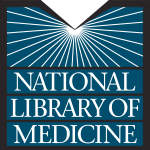- Industry: Library & information science
- Number of terms: 152252
- Number of blossaries: 0
- Company Profile:
The National Library of Medicine (NLM), on the campus of the National Institutes of Health in Bethesda, Maryland, is the world's largest medical library. The Library collects materials and provides information and research services in all areas of biomedicine and health care.
Organism that may harm public health, that attacks food and other materials essential to mankind, or otherwise affects human beings adversely.
Industry:Biology; Chemistry
Organism which has different allelic forms of a specified gene on each of a pair of homologous chromosomes or describing the genome of that organism.
Industry:Biology; Chemistry
Organism which has the same allelic form of a specified gene on each of a pair of homologous chromosomes or describing the genome of that organism.
Industry:Biology; Chemistry
Overall state to be aimed for in a particular aspect of the natural environment, for example, “water in an estuary such that shellfish populations survive in good health”.
Note: Unlike an environmental quality standard, the EQO is usually expressed in qualitative and not quantitative terms.
Industry:Biology; Chemistry
Parameter (such as body weight or temperature) characterizing the overall changes in the general state of the organism exposed to a toxic substance.
Industry:Biology; Chemistry
Partial or full complementary DNA sequence which can serve as a marker for a region of the genome which encodes an expressed product.
Industry:Biology; Chemistry
Passing blood through a column of charcoal or adsorbent resin for the removal of drugs or toxins.
Industry:Biology; Chemistry
Pathological condition characterized by deposition of bile pigment in the skin and mucous membranes, including the conjunctivae, resulting in yellow appearance of the patient or animal.
Industry:Biology; Chemistry
Pathological increase in the production of ketone bodies, e.g., following blockage or failure of carbohydrate metabolism.
Industry:Biology; Chemistry
Pathological process by which neurons are damaged and killed by the overactivation of receptors for the excitatory neurotransmitter glutamate, such as the NMDA receptor and AMPA receptor.
Note: Excitotoxins like NMDA and kainic acid bind to glutamate t receptors, and can cause excitotoxicity by allowing high levels of calcium ions to enter cells, activating enzymes such as phospholipases, endonucleases, and proteases such as calpain which damage cell structures including the cytoskeleton, membranes, and DNA.
Industry:Biology; Chemistry
